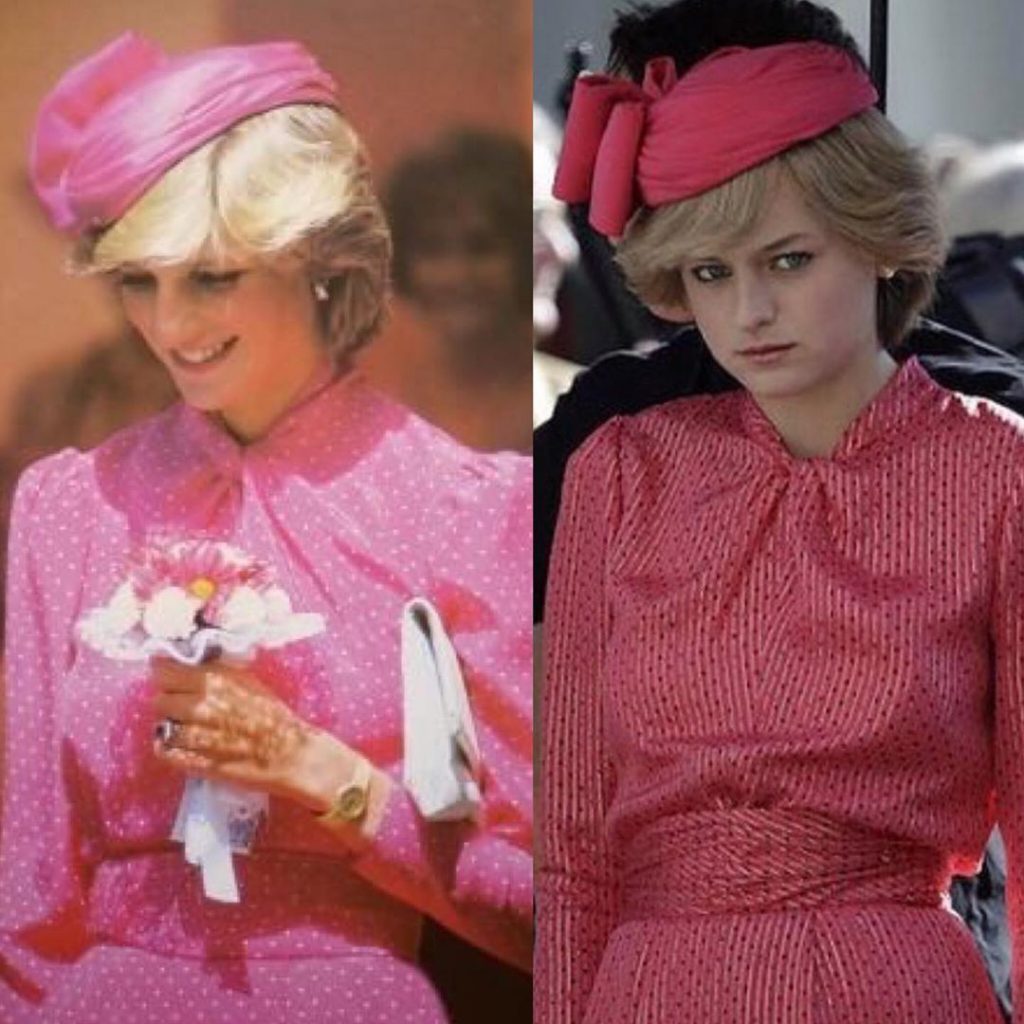Over the years we have made great progress as a society to minimize the stigma surrounding mental illness, including eating disorders. This has allowed more individuals to feel safe seeking treatment when they find themselves in the throes of an eating disorder. Bulimia Nervosa is one type of eating disorder that is particularly powerful and aggressive in its development. It is defined by episodes of binging on large quantities of high calorie foods then purging through vomiting, laxatives, or excessive exercise. Bulimia can have a detrimental effect on an individual’s health and life. The greater the discussion and visibility of such disorders, the closer we can come to minimizing the damage done when one suffers in silence.
There has been some talk about bulimia in the media recently due to its depiction in the latest season of the popular Netflix show, The Crown. This season introduces a young Diana Frances Spencer who became Princess Diana of Wales in 1981 when she was twenty years old. The show portrays her progression from a relatively normal 18-year-old girl living with flatmates in London to a princess in Windsor Castle. This rapid and sudden shift brought her into a glamorized position, the reality of which was much lonelier and isolating than the media made it out to be. In this tumultuous transition to life in the Royal Family, Diana incurred great stress from the pressures of being such a public figure with high expectations for perfection.

Developing bulimia helped Princess Diana to deal, albeit in a maladaptive and unhealthy way, with the burdens, demands, and loneliness that she felt in her new life. The episodes which include Princess Diane begin with a disclaimer stating, “The following episode includes scenes of an eating disorder which some viewers may find troubling. Viewer discretion is advised,” followed by a link for those struggling with an eating disorder. This was an effective way for the show to acknowledge the seriousness of the subject matter and offer a resource to those who engage in similar behavior and would like to seek help. Revealing Diana’s disorder on the show allows the audience to see that an eating disorder isn’t selective or reserved for those with simpler, less extravagant lives. They can happen to anyone, whether they are impoverished in America or a Princess in England. Lacking tools to cope with uncomfortable feelings and emotions hits the famous and unknown alike. Bulimia, as well as other eating disorders, can initially masquerade as a helpful friend to anyone feeling scared, alone, or hopeless. There is an ocean of emotions occurring beneath the surface of a food binge, and purging can seem like the perfect solution to undo what can feel like a terrifying mistake. Terrifying because someone struggling with bulimia often has a fear of gaining weight, resulting in the obsessive need to purge. This seeming “solution” is soon revealed to be horribly self-destructive, wreaking havoc on the person both mentally and physically. What is conveyed most powerfully in the show is that Diana felt alone and unable to speak to anyone about how she felt or her unhealthy practices. Her situation illuminates how vital it is to have connection, support, and to feel safe to seek help when we are struggling.
Diane eventually spoke openly about her struggles with bulimia, wanting others to know that this is an unnatural and harmful response to uncomfortable feelings and undesirable circumstances. By deciding to include this personal reality of Diane’s life in the show, the creators bring to light the effects of overwhelming stress and lack of human connection.
Princess Diana’s relationship with her husband was strained, and her social connections were limited. Diana later shared that she did eventually recover from bulimia as she began to embrace her role as an advocate for social change and charities. Leaving it behind allowed her to feel much happier and more grounded.
The more we can speak openly about our experiences the more we can feel empowered to embark upon a journey toward recovery. Diane had no one to share with; she was alone with her secrets. We’re fortunate to have safe spaces to speak openly and seek comfort. Bulimia can be an extremely scary and lonely affair. It can take hold and become very addictive and invasive in our lives. To move from that dark place, it helps to shine the light to aid us in seeing the pathway out. There is hope that the latest season of The Crown may ignite conversations about eating disorders along with the thoughts and behaviors that are often kept secret. Through these discussions those suffering from an eating disorder will see that they are in fact, not alone.
Written by
Whitney Walker, LMFT
whitney@womenwaken.com
womenwaken.com
If you or someone else who you know is being affected by an eating disorder, you can get help at this link. EDRC provides support groups for both those recovering from an eating disorder as well as their friends and family. You can also find a comprehensive directory of specialized treatment providers in the Bay Area here.






